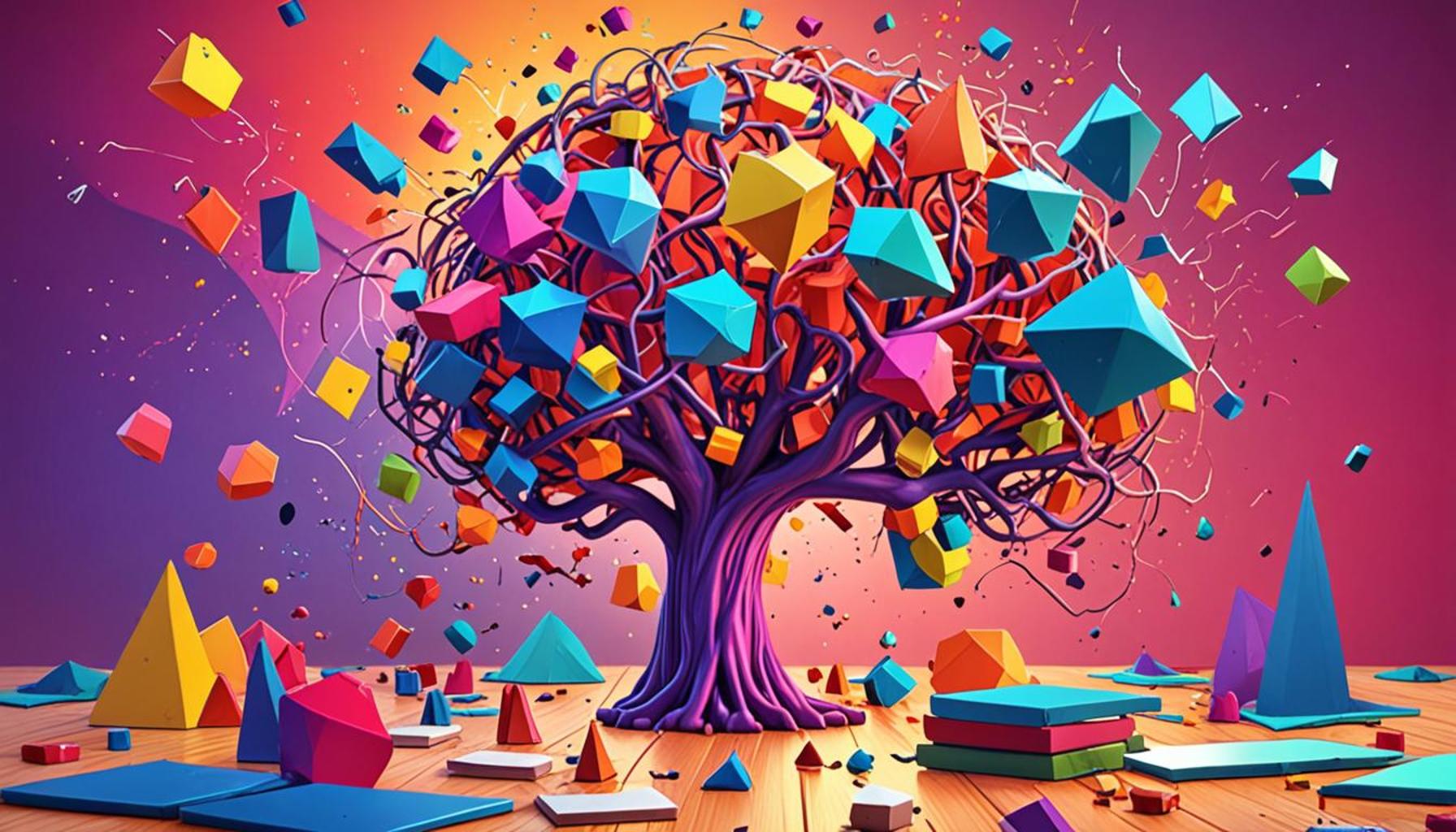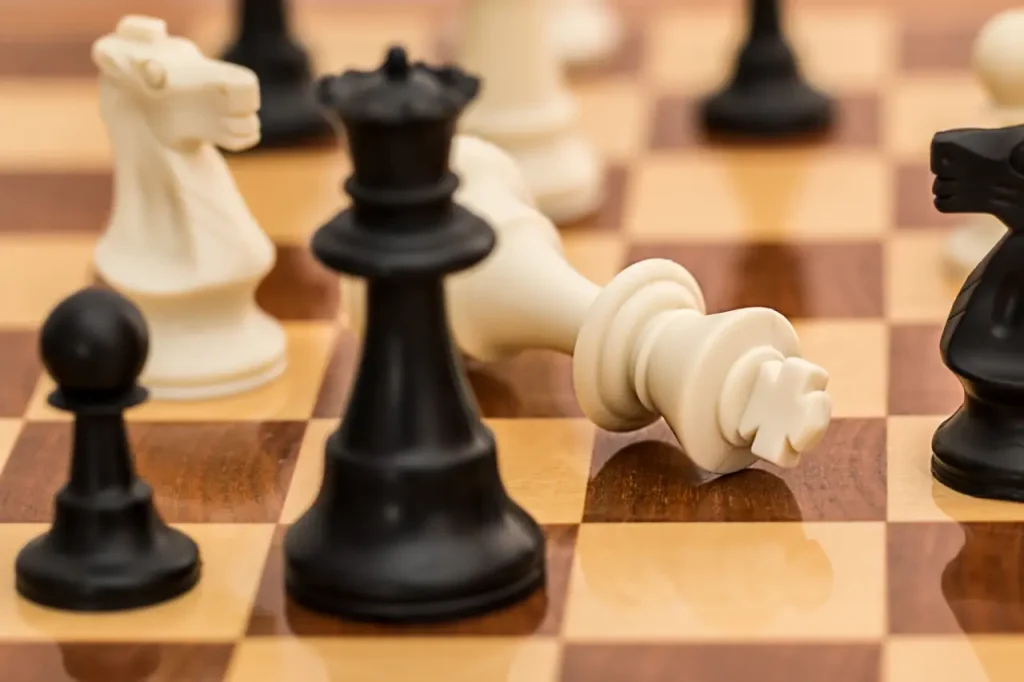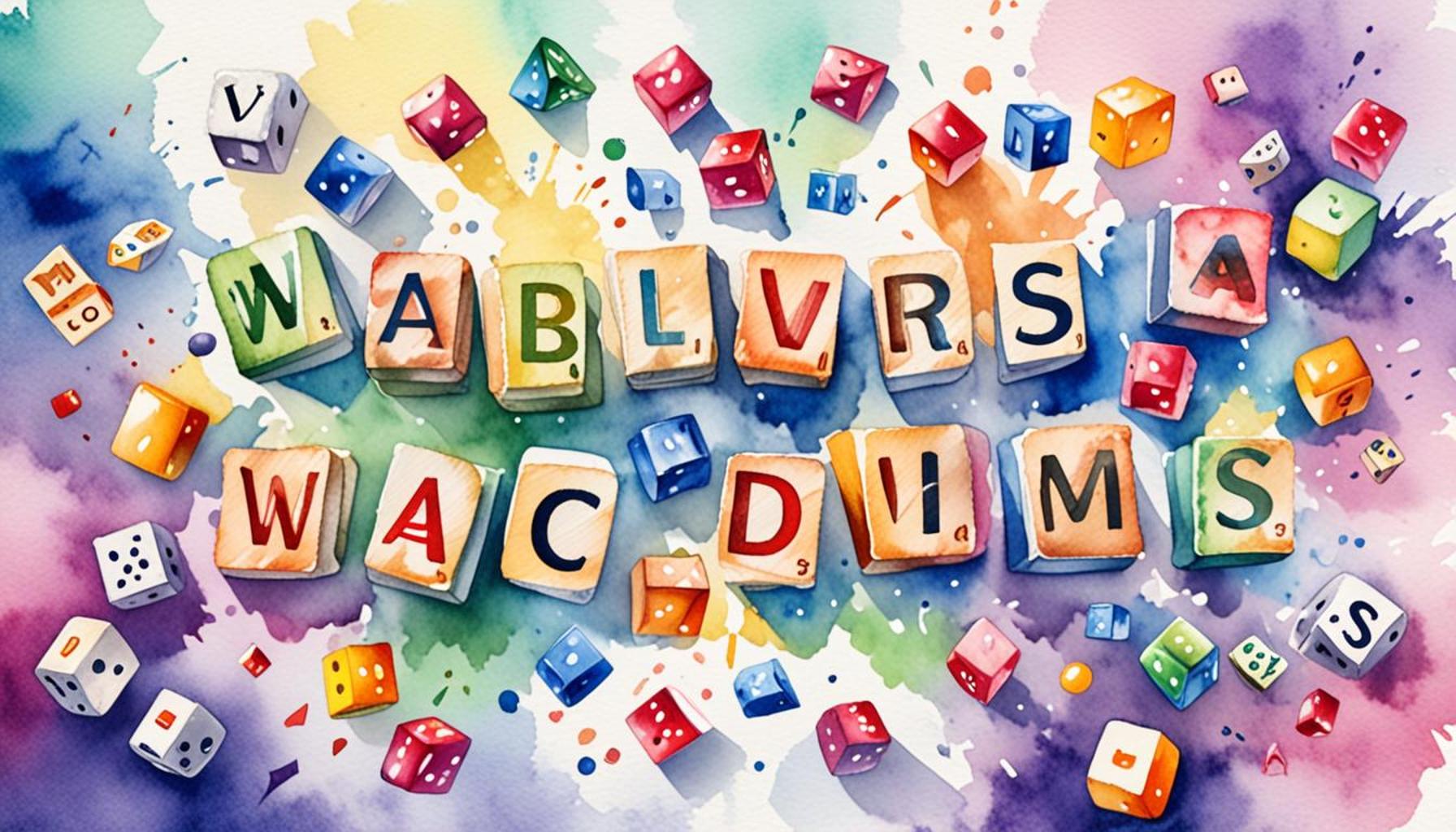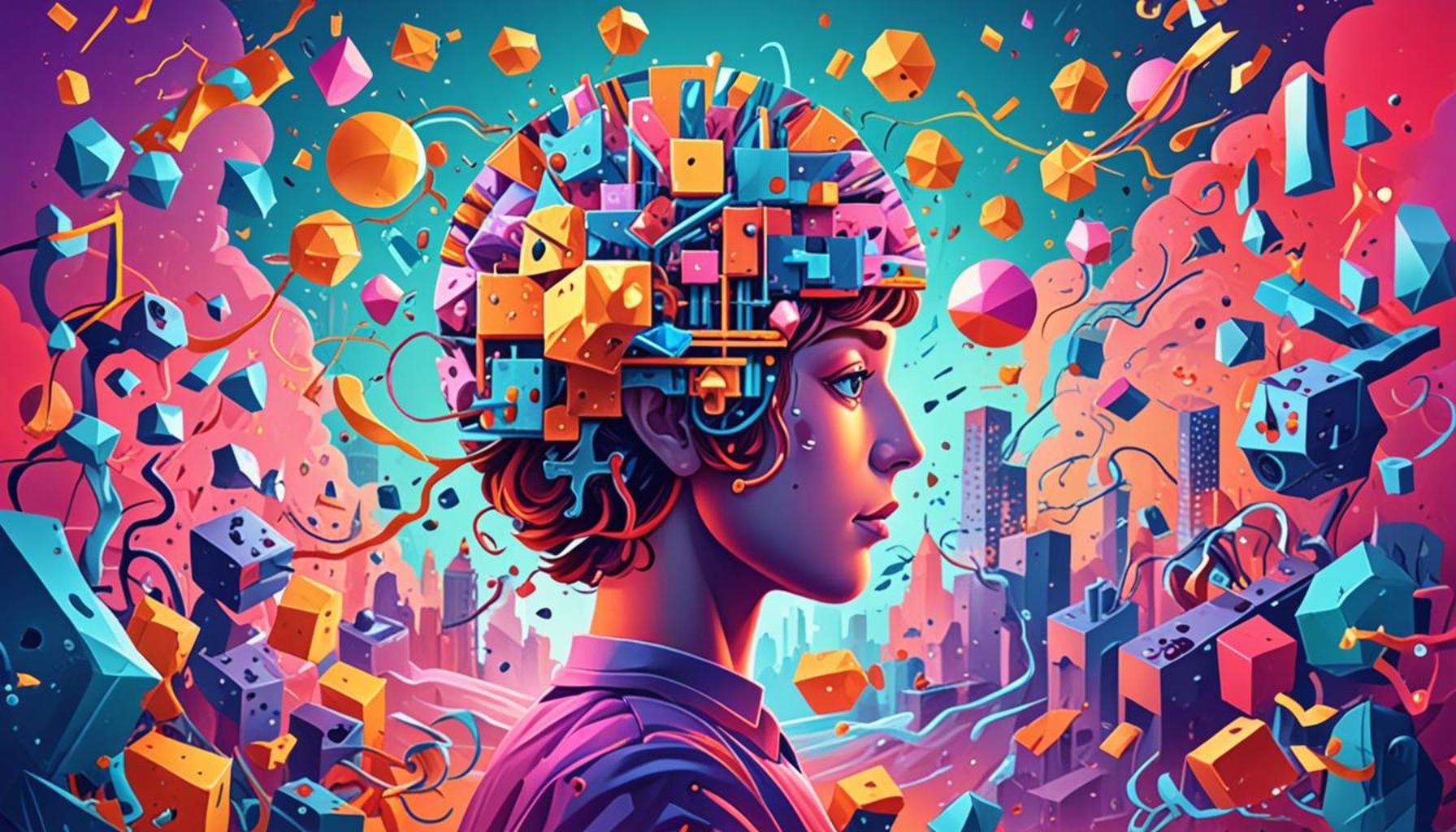The Psychology of the Problem: Learning to Solve Conflicts with Logic Games

The Role of Logic Games in Conflict Resolution
Conflicts are an inevitable part of human interaction, arising in diverse situations such as family settings, friendships, and professional environments. By delving into the psychology behind these conflicts, individuals can develop effective strategies for resolution. One innovative method for addressing conflict is through logic games, which can make navigating these situations feel less overwhelming and more approachable.
Logic games provide a unique and interactive platform that enhances essential skills useful for addressing conflict. Engaging in these games offers a safe environment to:
- Analyze situations critically – Players learn to dissect problems, breaking them down into manageable components, which helps in understanding the core issues at hand.
- Enhance problem-solving capabilities – Through rigorous challenges, participants develop creative solutions, honing their ability to think outside the box when mediating personal disputes.
- Foster communication and collaboration – Many logic games require teamwork, encouraging players to communicate effectively and work together toward common goals, which is essential during conflicts.
Research has shown that engaging with puzzles and logic games can significantly boost cognitive flexibility. This mental agility is critical; players who sharpen this skill are better equipped to handle tensions with enhanced logic and reasoning. For instance, a study conducted by Harvard University illustrated that individuals who regularly engaged in strategy games displayed superior conflict management skills, showcasing the lasting impact of these interactive experiences on both children and adults.
Additionally, logic games incorporate components such as:
- Strategic thinking – Players must come up with long-term strategies to outsmart opponents, mirroring the need for strategic approaches in resolving real-life disputes.
- Decision-making under pressure – Logic games often require players to make quick yet informed decisions, mimicking high-stress environments in workplaces where conflicts may arise.
- Identifying and assessing various viewpoints – Engaging with diverse game scenarios enables players to appreciate different perspectives, a skill vital for empathizing with others in conflict situations.
As individuals exercise these skills through gameplay, they cultivate a deeper understanding of human behavior and the dynamics of conflict. This article explores how the principles of psychology and logic games intertwine, unveiling an effective approach to dispute resolution. If you are curious about improving your conflict resolution skills through engaging and enjoyable methods, logic games might just be the intriguing solution you need. Embrace the challenge and discover how play can be a powerful tool in resolving real-life conflicts.

DISCOVER MORE: Click here to learn about the stress-reducing power of board games</
Understanding Conflict Through Play
The integration of logic games into conflict resolution strategies is not merely about entertainment; it taps into fundamental psychological principles that govern human behavior. When people engage with logic games, they inadvertently step into a world that mirrors real-life conflicts. This thematic relevance can foster a deeper understanding of how individuals react under stress, the motivations driving their actions, and the psychological barriers that may impede effective conflict resolution.
One of the key aspects of logic games is their ability to create a simulated environment where players can explore different scenarios and outcomes. As participants manipulate variables and navigate challenges, they develop crucial insights into the nature of conflicts. Ultimately, this serves to arm them with the tools needed to approach real-life disputes with a more analytical mindset.
Several psychological concepts come into play when discussing the effectiveness of logic games in conflict resolution:
- Emotional Regulation – Through gameplay, individuals can practice managing their emotions in high-pressure situations. Learning to pause, reflect, and respond rather than react impulsively mirrors the emotional regulation needed during genuine conflicts.
- Perspective Taking – Many logic puzzles offer multiple paths to a solution, inviting players to consider alternative viewpoints. This skill is critical in real-life negotiations, allowing individuals to appreciate the opposing side’s perspective and foster empathy.
- Negotiation Skills – Logic games often require players to negotiate their way to victory, honing the essential skills of bargaining and compromise, which are vital when resolving conflicts.
- Critical Thinking – Engaging with complex puzzles demands a high level of critical thinking. Participants learn to sift through data, identify relevant facts, and make well-informed judgments—skills that directly translate to effective conflict resolution.
As players immerse themselves in the challenges posed by logic games, they experience a unique form of cognitive training. Studies have indicated that regular participation in such games can significantly enhance cognitive performance, leading to improved conflict management skills. For example, a 2018 study published in the Journal of the Psychology of Action revealed that individuals accustomed to strategic gameplay displayed a marked decrease in conflict escalation behaviors, suggesting that their enhanced decision-making abilities directly impacted interpersonal interactions.
Beyond cognitive benefits, the social interactions that occur when engaging in logic games cannot be overlooked. Involving others in gameplay can build camaraderie and strengthen relationships, providing a supportive context in which conflicts can be addressed more openly. This social dynamic becomes particularly relevant in workplace settings, where collaborative logic games can facilitate a culture of teamwork and collective problem-solving—a formidable antidote to the conflicts that can arise in high-stakes environments.
Thus, the connection between the psychology of conflict and the strategic engagement offered by logic games serves as a promising area for individuals looking to enhance their conflict resolution skills. As this article continues, we will delve deeper into practical approaches and specific logic games that can be utilized to foster these essential skills, proving that understanding and resolving conflicts can indeed be a game worth playing.
| Category | Description |
|---|---|
| Conflict Resolution Techniques | Logic games teach players to analyze situations, enabling effective problem-solving. |
| Cognitive Development | Engaging with logic games enhances critical thinking and helps elaborate on diverse perspectives of a conflict. |
| Ethical Decision-Making | Playing these games encourages players to weigh possible outcomes and consider ethical implications in resolving disputes. |
| Empathy Building | As players explore scenarios, they develop empathy by understanding different viewpoints, crucial in conflict resolution. |
Exploring “The Psychology of the Problem: Learning to Solve Conflicts with Logic Games” reveals not only the mechanics of conflict resolution but also how these games foster a deeper cognitive understanding. Logic games prompt players to engage in strategic thinking, honing their analytical skills while providing a safe environment to experiment with decision-making processes. Emphasizing ethical decision-making and outcomes, such games empower individuals to consider the broader impact of their actions within a societal context.Moreover, as outlined, logic games are instrumental in developing empathy, which further enriches interpersonal relationships. By simulating real-world scenarios, these games allow players to practice their responses to various conflict situations, fundamentally enhancing their ability to navigate such challenges in real life. Consequently, the importance of these logical frameworks extends beyond mere gameplay, shaping individuals into more capable and understanding problem solvers.
DISCOVER MORE: Click here to delve deeper
Building Conflict Resolution Skills Through Strategy
The intersection of logic games and conflict resolution not only cultivates analytical abilities but also nurtures several interpersonal skills essential for navigating complex human interactions. Developing a well-rounded approach to conflict management involves understanding various facets of human behavior. By engaging with logic games, players acquire strategic insights that can effectively translate into real-world applications.
One compelling aspect of logic games is their inherent demand for players to strategize and plan their moves while anticipating the actions of their opponents. This creates a space where individuals can practice not just logical reasoning but also proactive conflict prevention. By contemplating the possible responses of others, players learn the significance of foresight in conflict situations. This anticipatory behavior is akin to developing a radar for potential misunderstandings and disagreements before they escalate.
In addition to strategic foresight, logic games often evoke elements of competition, providing players with a safe environment to experience rivalry without real-world stakes. This controlled competition enhances self-awareness and enables participants to assess their reactions under pressure. For instance, when faced with a challenging puzzle, individuals must navigate frustration and setbacks, mirroring the emotional climate present in tense negotiations. Learning to maintain composure in these situations directly informs how one responds to conflict in everyday life.
Moreover, the diversity of logic games fosters adaptability. Games designed with multiple strategies or paths encourage players to experiment with different approaches and observe the consequences of their choices. This process resembles the trial-and-error methodology often necessary in conflict resolution, where diverse perspectives and solutions must be tested to find the most effective outcome. Individuals who engage in this adaptable mindset are better equipped to respond empathetically and flexibly during real-life conflicts.
Research has demonstrated the powerful impact of collaborative logic games on interpersonal dynamics. A recent study conducted at the University of California revealed that teams who engaged in cooperative puzzle-solving activities showcased a remarkable improvement in their ability to communicate openly about conflicts. Participants reported feeling more comfortable expressing their opinions and were more willing to listen to opposing viewpoints, attributing these changes to the shared experiences and camaraderie developed through gaming.
When examining the implications of using logic games in therapeutic settings, the findings are equally compelling. Psychologists are increasingly utilizing logic-based activities in conflict resolution counseling, particularly in family therapy and relationship counseling. These games help facilitate discussions and encourage participants to explore their feelings in a non-threatening environment. By focusing on collaborative problem-solving, clients can unpack complex emotions and navigate underlying issues that may be contributing to conflict.
As the exploration of the psychology of problem-solving through logic games continues to evolve, it becomes evident that there is a wealth of potential for enhancing both individual capabilities and collective interactions. The lessons learned from gameplay offer valuable frameworks for individuals seeking to bolster their conflict resolution skills, making it a fruitful endeavor worth pursuing. In the following sections, we will delve deeper into specific logic games and activities that can be incorporated into conflict management training to promote these essential skills further.
DISCOVER MORE: Click here to uncover the benefits of logic games
Conclusion: Unleashing Potential Through Logic Games
In conclusion, the psychology of conflict resolution significantly benefits from the strategic engagement found in logic games. These games serve as a bridge, connecting theoretical understanding of human behavior with practical skills in resolving disputes. By offering a controlled environment for practice, logic games encourage individuals to develop essential capabilities such as foresight, self-awareness, and adaptability.
As players navigate the intricacies of strategic gameplay, they not only hone their analytical skills but also cultivate empathy and collaboration. This dual benefit is invaluable in today’s complex social landscape, where conflicts abound and the need for effective communication is paramount. Utilization of these games in therapeutic settings further underscores their relevance, proving that engaging in gameplay can foster deeper discussions and lead to meaningful resolutions.
Moreover, with ongoing research highlighting the positive outcomes of cooperative logic games, it’s clear that these activities can enhance interpersonal dynamics and facilitate open dialogue. They provide individuals with a unique toolkit to tackle conflicts—one that blends creativity, critical thinking, and emotional intelligence.
As we uncover more ways to integrate logic games into conflict management training, the opportunities for personal and communal growth expand. Whether you’re a teacher, a counselor, or simply someone looking to improve your interpersonal skills, incorporating logic games into your repertoire may just be the key to unlocking a more harmonious approach to conflict resolution. Embrace this unique intersection of play and psychology, and witness the transformation in your relationships and communication styles.


